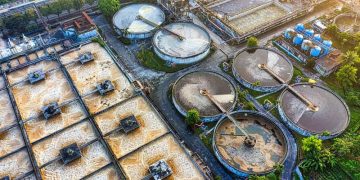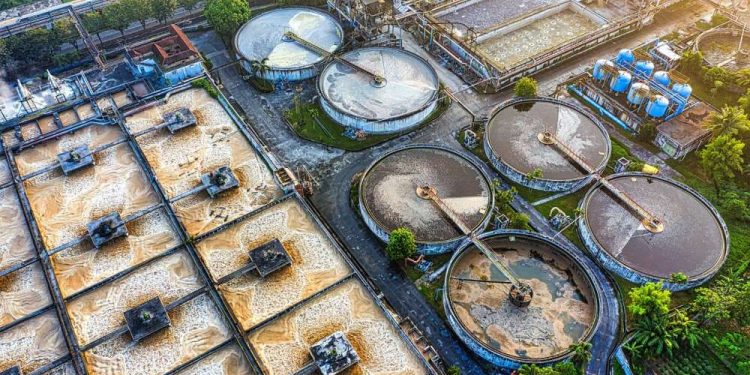A new study from Drexel University (USA) on the process of extracting ammonia from wastewater and converting it into fertilizer suggests that this technology is not only viable, but can also help make agriculture more sustainable.
According to the researchers, the extraction of nitrogen from ammonia produced in the wastewater treatment process can become an alternative to the nitrogen production process using the Haber-Bosch method.
Recovery of nitrogen from wastewater would be a desirable alternative to the Haber-Bosch process because it creates a “circular nitrogen economy”. This means that existing nitrogen can be reused instead of wasting energy and generating greenhouse gases to extract nitrogen from the atmosphere, which is a more sustainable practice for agriculture and can be a source of income for utilities.
A process called “air-stripping” removes ammonia from wastewater by raising the temperature and pH of the water enough to turn the chemical into a gas that can then be collected in concentrated form as ammonium sulfate.
The results of the life cycle analysis show that air screening emits about 5-10 times less greenhouse gases than nitrogen production using the Haber-Bosch method, and uses about 5-15 times less energy. The study shows that ammonia recovery can be cost effective even at low concentrations.
However, with this technology, fertilizers are produced in smaller quantities than with the industrial Haber-Bosch process. However, the ability to collect and reuse any amount of resources helps increase the resilience of commercial agriculture and prevents them from becoming water pollutants, the researchers say.































